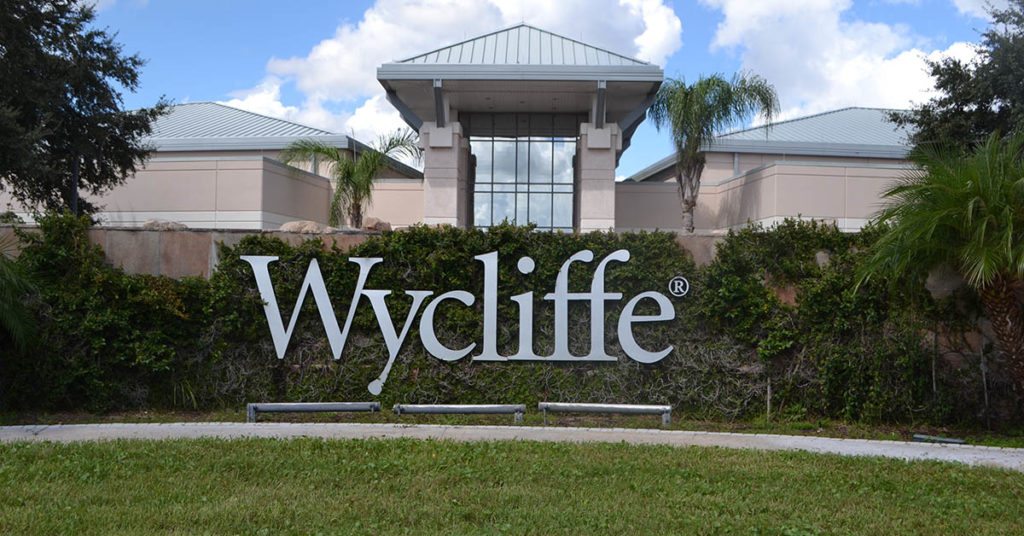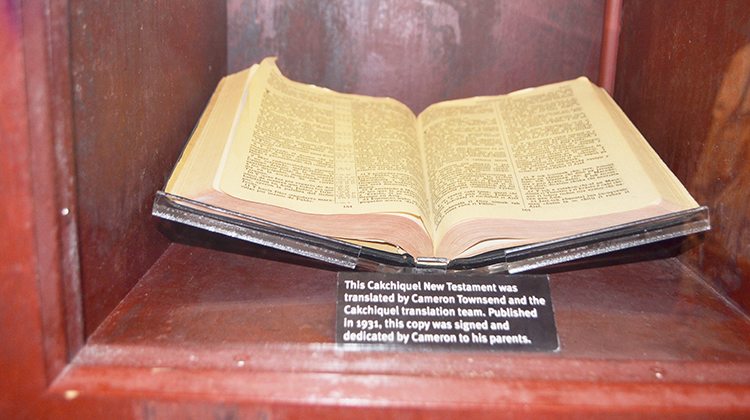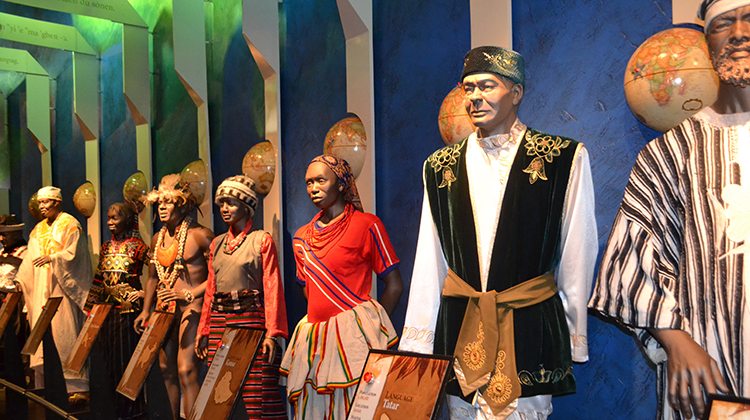
Wycliffe Bible Translators is the largest Bible-translating company in the world, and their United States headquarters is located in our Nonahood area off Moss Park Road. They are currently celebrating their 75th anniversary and have a new book to go along with the celebration, When God’s Word Speaks. A discount code is available at the end of this article for Nonahood News readers.
Upon entering Wycliffe, you see the Discovery Center, the Village Shop and the Wycliffe Café. All are open to the public, and I highly encourage you to stop by for the salad bar; I believe it’s currently the only one in our Nonahood area, and it is delicious. The Discovery Center is colorful and looks like something from our neighboring theme parks, while the Village Shop is a place where you can purchase unique gifts from around the world.
I was fortunate enough to speak to the president of Wycliffe, Mr. Bob Creson. He has worked for Wycliffe for more than 30 years and is eager to continue to reach areas and languages without a Bible in their native tongue. There are almost 7,000 languages worldwide. As of today, there are still 1,800 languages without a Bible. “It must be a clear, accurate, and natural translation with consistencies to their culture,” says Mr. Creson of how Wycliffe translates the Bible. He explained to me the importance of understanding cultural differences and how simple word-to-word translation is not enough. “Handing someone a snake in Cameroon is a sign of honor,” says Mr. Creson. “That is not the same in our culture.” American culture refers to love emanating from the heart; other cultures refer to the liver or the intestines. This is where Bible translation becomes a sort of art. These differences are what the Wycliffe translators learn and adapt into a translated Bible, a Bible in the peoples’ heart language.

Wycliffe translators span the globe. They are found on nearly every continent. In the English language, a word generally means what it says. Around the world, languages differ greatly. Mr. Creson mentioned how some translators have had to create an alphabet for languages that were only spoken. He also mentioned the differences in tonal languages, a language where the tone or pitch changes the word. These language differences are where the science of translation occurs.
Technology has greatly helped Wycliffe in Bible translation. Before computers, it took roughly 25 years to translate a Bible. It currently takes about eight years. “We have Vision 2025,” says Mr. Creson of Wycliffe’s goal of having a Bible translation program started by that year in every language still needed. “If we meet our goal, and we are on target, every language should have a translated Bible by 2033.”
Walking around the Discovery Center, I saw two different Bibles, Da Jesus Book in Hawaiian Pidgin and De Nyew Testament in the South Carolina language of Gullah. Mr. Creson says, “Our goal is to have the Bible translated in your heart language; the language you dream and express love in.”

As part of their 75th anniversary, Wycliffe is offering a coupon code for a 25% discount to the book When God’s Word Speaks commemorating 75 years of Bible translation when you use the code NONA25. It is available online at www.wycliffe.org/shop or by visiting the Village Shop in the Discovery Center at Wycliffe. At the Village Shop, simply mention the code for the discount.
To learn more about Wycliffe Bible Translators, please visit the Discovery Center located at 11221 John Wycliffe Blvd., Orlando, FL 32832. I encourage you to take a tour as they are very knowledgeable. Their hours are Monday-Friday from 9 a.m. to 4 p.m.


